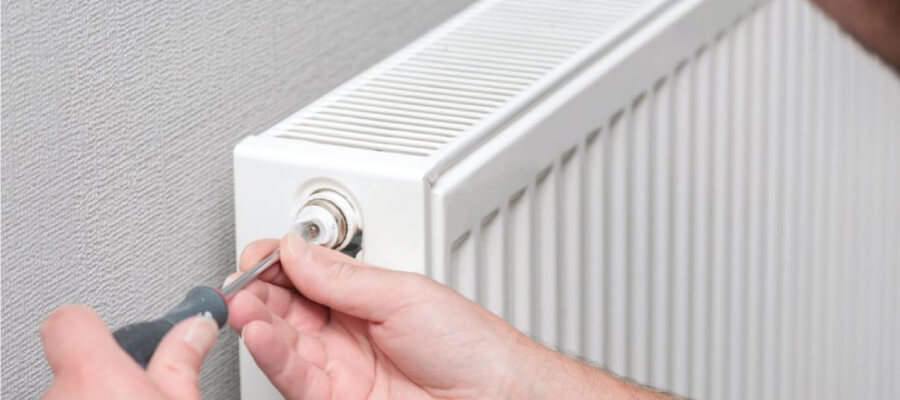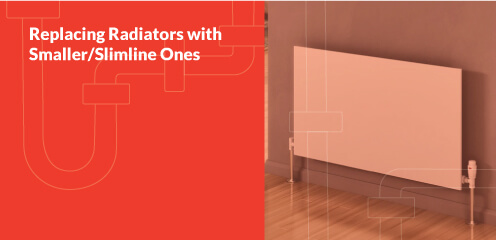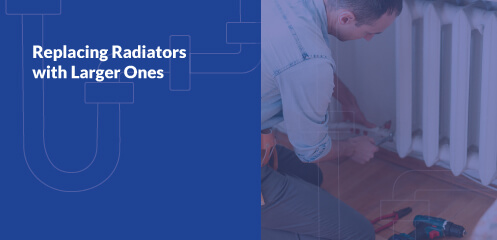Do I Need New Radiators if I Get a New Boiler?
You’ve decided to replace your boiler with something new, improving your heating system drastically. Now, the question is, should you upgrade your radiators to match? Will your old radiators still work with the new boiler, and will you be wasting the power of your new boiler with old and outdated radiators?
We’re here to answer these questions, and take you through the benefits of upgrading radiators alongside a boiler, helping you to make the right choice for your home and for your pockets.
Do you have to replace radiators with a new boiler?
The simple answer is no, you don’t have to replace radiators with a new boiler, especially if your current radiators are not too old and still in good working order. A professional boiler installation is likely to include a system flush, which might clear any debris related issues in the pipes of your current radiators.
You might want to upgrade to modern radiators alongside a new boiler if your current ones are particularly old, are damaged, or if you’ve noticed they’re not performing as you’d expect. Also, in some cases, certain radiators and boilers may not be compatible, which is a conversation you should have with your experienced installer.
Do old radiators work with new boilers?
In most cases, old radiators do work with new boilers. However, it’s important to note that in some cases, new radiators will be much more effective. Old radiators might bottleneck the performance of your new boiler as, despite the efficiency of the boiler, the radiators aren’t giving out as much heat as they could be.
In general, we’d recommend installing new radiators after 10-15 years, or if you’ve noticed any signs that they may be past their best. Modern boilers are designed to be more energy efficient, which is better both financially and environmentally; but if paired with outdated radiators, you risk losing out on this efficiency.
Plan Your Upgraded Radiator Installation Now
Can I use my existing radiators if I upgrade my boiler?
Yes, you can normally use your existing radiators if you upgrade your boiler; but it depends on the state/condition of your current radiators. Using your existing radiators will not always be the best option in terms of efficiency and long term costs.
Consider what type of boiler you’re upgrading to. Going from a conventional to a combi boiler might require pipework alterations or or new radiators to ensure optimal heat output.
The benefits of replacing your radiators when you upgrade your boiler

There are a number of benefits to replacing your radiators at the same time as your boilers:
Signs that you might need new pipework or radiators
If you think you might need new pipework or radiators, there are a number of signs to look out for:
If you’re getting a new boiler, and you notice any of these things, we’d recommend that you consider new radiators too.
How often should radiators be replaced?
Radiators should be replaced every 10-15 years, assuming there are no major issues with them during this time. However, if you notice any cold spots, rust, corrosion, or just poor heating in your house, it is worth calling a professional local plumber and discussing your options with them.
Replacing radiators is a job we at Lacey Plumbing & Heating specialise in, so be sure to get in touch for experienced solution focused plumbing and heating.
Book in a New Radiator Installation Now
How to prolong the life of your existing radiators
Some top tips to prolong the life of your existing radiators include:
For peace of mind that your boiler and radiator installations or repairs are being carried out by experienced professionals, get in touch with our team at Lacey Plumbing.





